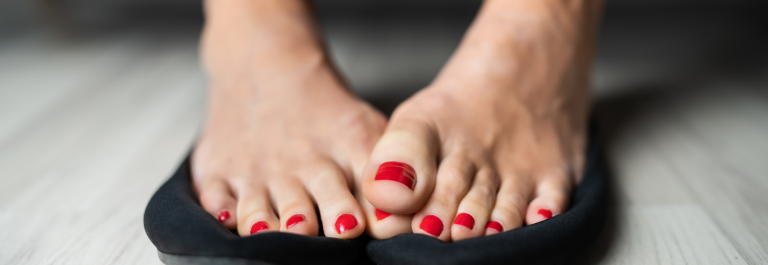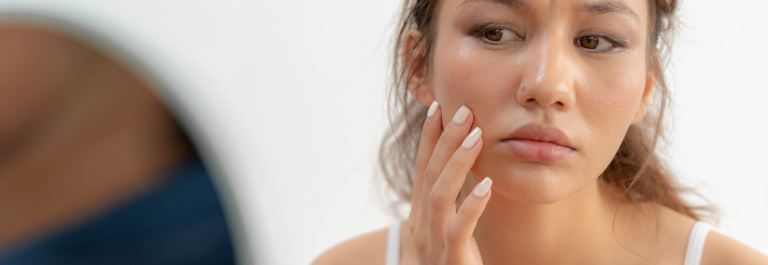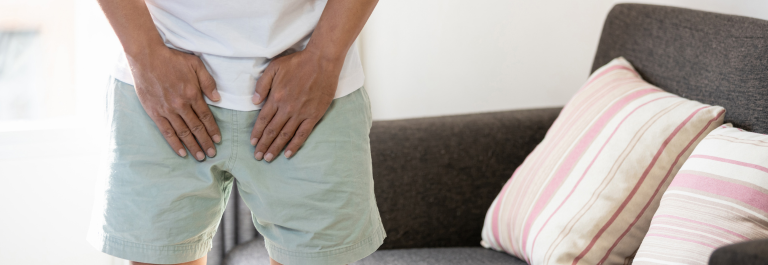Sweating - it happens to us all. Come rain or shine, heat or cold, sweating is your body's way of regulating temperature, keeping you comfortable and cool.
But especially during those hot summer hikes or cozy fall walks, there's nothing worse than having sweaty feet, especially if they begin to smell!
That's why we're here to share everything you need to know about:
-
Why do your feet sweat, and what counts as 'extreme sweating.'
-
Best lifestyle changes to prevent sweaty feet
-
How to treat smelly feet naturally and effectively
While experiencing sweaty feet may be embarrassing - it happens to the best of us! Keep reading to learn more about how to keep your feet comfortable, cool, and dry, putting your best foot forward today.
Foot Sweating: What's It All About?
Did you know your feet possess more sweat glands per inch than anywhere else on your body - even more than your armpits?
This is because foot sweating is an essential and natural part of your body's efforts to regulate body temperature, helping to cool your blood and skin as the water molecules within your sweat evaporate off the feet.
Sweat itself doesn't smell, but when the odor-causing bacteria on your skin mixes with your sweat, it can lead to smelly feet.
Plantar Hyperhidrosis: How Much Sweat is 'Excessive'?
Plantar Hyperhidrosis - or excessive sweating of the feet - is a hereditary condition that affects approximately 5% of the population, typically impacting men more than women.
Symptoms include:
-
Extreme sweating causes soaking feet
-
Experiencing damp footprints when you walk
-
Cold feet due to your skin being constantly wet from sweating
-
Hyperhidrosis may affect other parts of your body, too, such as sweaty hands
Due to the heightened moisture, heat, and humidity levels that people with plantar hyperhidrosis experience around their feet, they also run a higher risk of developing secondary foot conditions, such as athlete's foot and a nail fungal infection.
How Can I Stop Sweaty Feet: Is It Possible?
There are many ways that people might try to stop sweating altogether, including Botox injections. Not only are these procedures painful and expensive, but they are also only temporarily effective, with botox injections lasting between 3-4 months.
While stopping your foot sweat altogether might be a tall order, thankfully many steps you can take to reduce sweating of the feet, helping you to feel more comfortable and confident.
Let Your Tootsies Breathe
Did you know that cotton socks and nylon socks are some of the worst things you can do for sweaty feet? These fabrics struggle to absorb sweat, leaving your feet soggy and smelly.
Instead, opt for moisture-wicking socks such as the Remedywear™ Adult TENCEL Socks (and for Kids). Embedded with TENCEL and anti-inflammatory zinc, these breathable socks have been specially designed to help prevent skin itching, while zinc kills the bacteria that cause foot odor.
While it might seem counterintuitive, wool socks are also an excellent alternative for sweaty feet. This is because wool wicks away moisture from your skin to help keep your feet dry.
Ensure you wear breathable shoes, opt for sneakers with air mesh tops and sandals, or go barefoot where possible.
Wash Your Feet Daily
Given the sweat your feet produce daily, you must get into the habit of washing your feet daily. To help fight foot infections, we recommend using the Coconut and Sunflower Oil Soap Bar. Made with cold-pressed coconut oil; this soap effectively reduces the presence of bacteria, fungi, viruses, and other pathogens. At the same time, shea butter contributes anti-inflammatory and antioxidant properties.
Try a foot soak to spice up your self-care routine even more. Studies have shown that soaking your feet in 3-4 tablespoons of baking soda for 20 minutes can help kill bacteria on your feet and soften dead skin cells. Alternatively, adding a couple of tea bags of black tea to your foot soak has also been shown to help reduce foot sweat. This is because the tannins within black tea help to shrink your skin's pores, reducing sweat flow.
Ensure you have 100% dry feet afterward before wearing socks or shoes.
Natural Remedies
Did you know the remedy for your sweaty feet might already be in your kitchen pantry?
Studies have shown that applying apple cider vinegar or lemon juice to your feet can be a natural antiperspirant, neutralizing foot odor and fighting bacteria.
Just squeeze a little vinegar or juice onto a cotton ball and apply it to the soles of your clammy feet, thoroughly drying your feet before you pop your socks back on.
Foot Powder
Some may find that sprinkling your feet with an antifungal powder can reduce foot odor and keep your tootsies dry and cool inside your socks.
For a DIY alternative to antifungal powder, try cornstarch to help absorb moisture.
How Can I Treat Sweaty Feet Infections
Let's say your feet are already very sweaty, and you've noticed a toenail fungus taking hold. Don't fret!
Treat your feet with Organic Manuka Skin Soothing Cream - a honey-kissed balm made with 16+ New Zealand Active Manuka honey. Manuka oil is more potent than tea tree oil when battling bacteria and fungus, while olive oil contains antioxidant properties.
Again, just be sure to allow your feet to be 100% dry after applying moisturizer before you put on any shoes or socks.
If your fungal infection persists, we encourage you to contact your doctor for expert advice on further treatment options and oral medications as needed.
Combat Sweaty Feet and Put Your Best Foot Forward Today
Follow these steps to help you manage excessive sweating and feel more comfortable in your shoes today.










